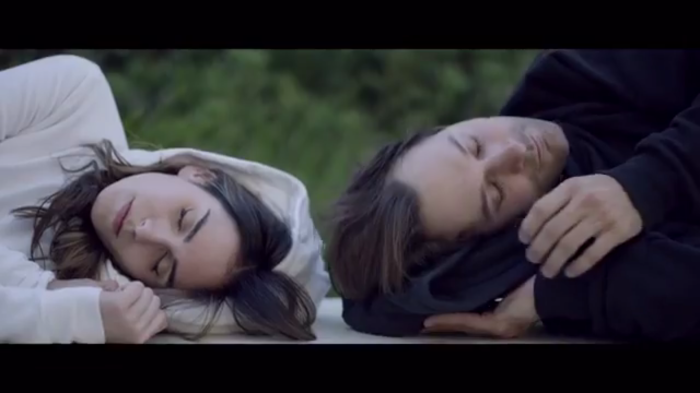You never know who is going to take the empty seat next to you. In the case of New York University film student Matïss Kaža’s, one encounter turned into the inspiration for his directorial debut. Kaža, a sophomore, is working to finish up his film “One Ticket Please” which tells the story of 77-year-old Nicki Cochrane who for more than 25 years has been grabbing the subway from her home in Jamaica, Queens to Manhattan to go to the theater — every day. RELATED:Queens filmmaker hopes to bring ‘croissoli’ to life in new film The 20-year-old student, who came to New York City from Latvia in the fall of 2014 to study film and television at the NYU Tisch School of the Arts, met Cochrane when he went to see his first play in the Big Apple at The Pearl Theatre Company. He said Cochrane sat next to him and during the intermission began talking to him and asking questions. Once the show ended she invited him to go see another play and from there Kaža began knowing her story. “She exposed me to the world of New York theatre,” Kaža said.
After a year of hanging out with Cochrane, Kaža learned of her deep love for theater — in all shapes and forms. The 77-year-old does not only attend large productions, but also goes to small theaters as well and has been doing so for more than 25 years on almost a daily basis. The only time she misses a day is when there are no shows or when she takes a vacation for Christmas. He added that for Cochrane, going to the theater is a way for her to learn about the world and human condition — and see the world through different eyes.
“She does it purely simply because of her love for this art form,” Kaža said. “Every day she goes to lectures, different educational events but the primary goal is to see one play every day in New York.” The film follows Cochrane on her daily trek to the theater and shows how when sometimes she doesn’t have a ticket for a particular play she will stand outside a theater door holding a sign that says “One Ticket Please.” Most of the time, according to Kaža, even if it means getting into some trouble, Cochrane manages to get a ticket — one way or another.
“She’s more energetic than most college students,” Kaža said. “She will be ready to fight for a front row center seat.”
And although the film will look at Cochrane’s passion for theater it will also examine what brought her to where she is now — immigrating from India with her father in the 1940s — and also the consequences of her decisions. Without giving too much of the film away, Kaža said that Cochrane creates quick friendships at the plays she attends but holds a distanced and rocky relationship with her own children.
“[I hope] to show the life of a person who is so dedicated to this art form which they believe is a way of learning more about the world and how this passion and education impact her daily life,” he said. He also said that filming a documentary in itself is at times difficult because of high security levels in the city, which sometimes make it difficult for a camera crew to follow Cochrane around.
“I considered her to be a very private person because she asked me questions instead of speaking about herself,” Kaža said. “It was really a matter of trying to convince her because she felt unworthy to be a subject matter for a film.” RELATED:’Mountains May Depart’ is an arty filmmaker’s sneaky melodrama Kaža and his team have already begun filming “One Ticket Please” but have turned to Kickstarter to raise the remaining funds needed to complete the work. The campaign, which has a goal of $3,000, will go towards paying for re-enactments to retell Cochrane’s life, transportation, post-production and festival submissions. “I really appreciate anybody that finds a story about a relatively unknown person worthwhile and I think small stories are the best kinds of stories,” Kaža said. “Stories about real people and their lives.”
One of the difficult parts when it came to the film was starting to get Cochrane to open about her life, Kaža added.


















